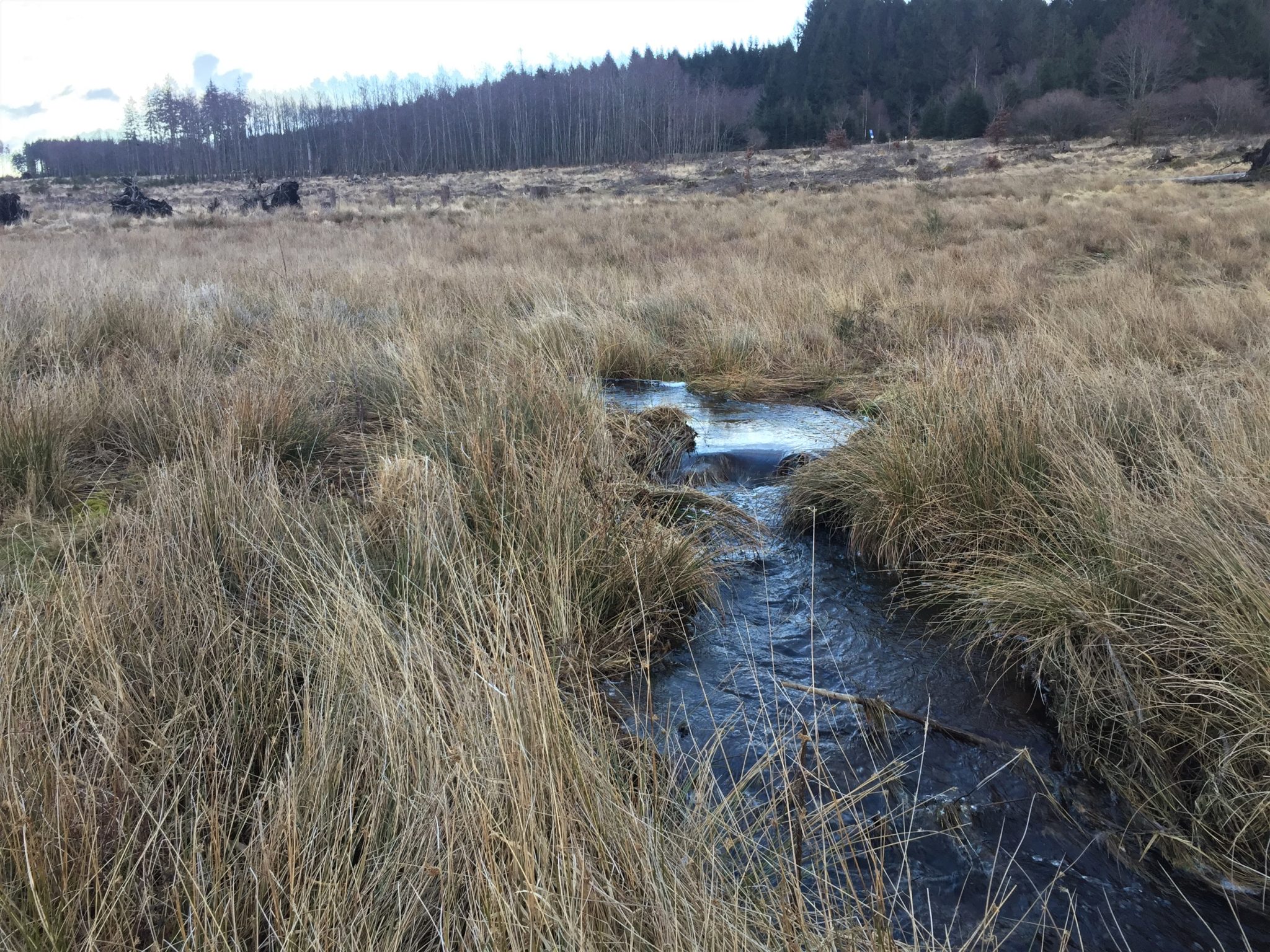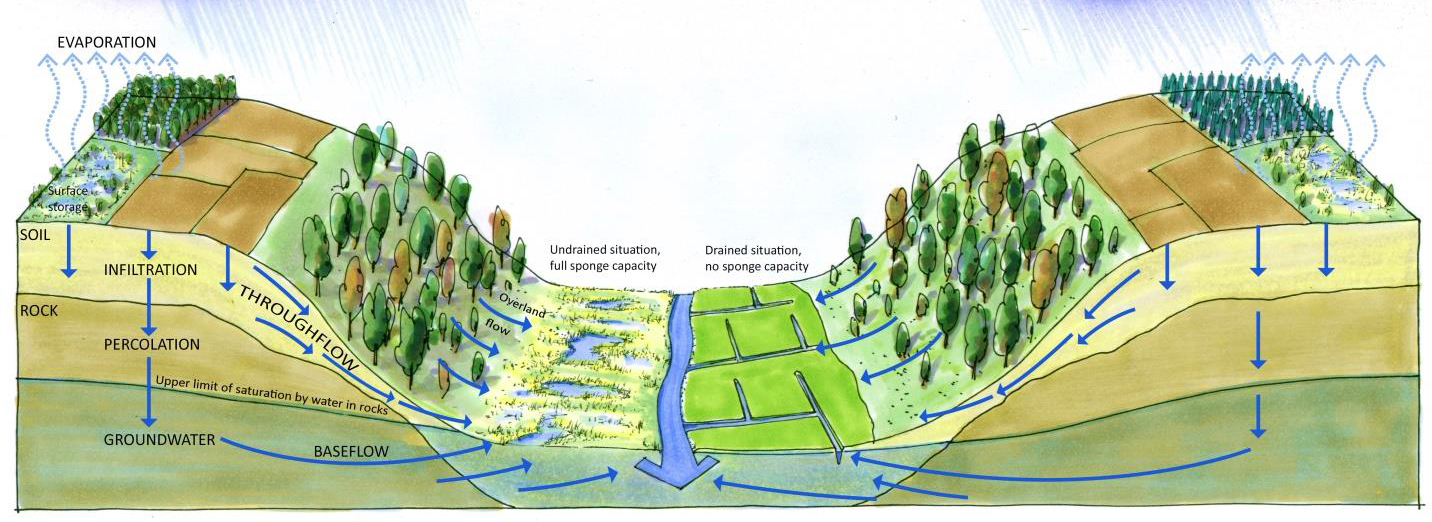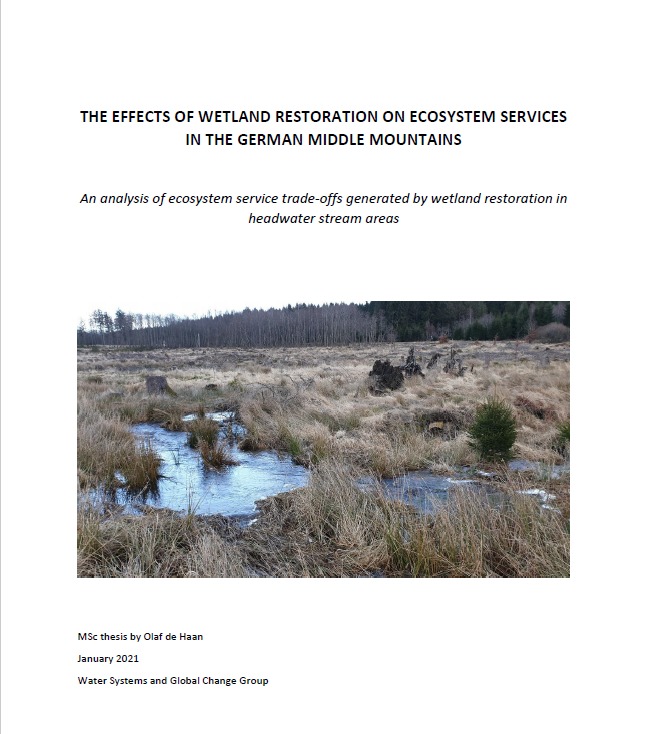Wetland restoration scenarios to determine ecosystem services trade-offs

Restoration of the sponge function in wetland soils in sub catchments of larger river systems is a nature-based solution for flood mitigation and drought prevention with potential impact at basin scale. This solution can help deliver multiple policy objectives and societal benefits. Previous studies by Wetlands International and WWF looked at the Rhine river basin and demonstrated the scale of impact of sponge restoration and the size of restored area needed to have a meaningful impact at Rhine river basin level. A new research report looks into the ecosystem services of sponge (or wetland) restoration in the Middle Rhine region and the trade-offs between these services in potential restoration scenarios.
Ecosystem services trade-offs
Olaf de Haan, master student at Wageningen University & Research, has researched the effects on ecosystem services and the ecosystem services trade-offs that occur when wetlands are restored in the German Middle Mountains. In his master thesis “The effects of wetland restoration on ecosystem services in the German Middle Mountains” he analyses the ecosystem services trade-offs that wetland restoration generates in headwater stream areas in low mountain ranges. The German Middle Mountains were used as a case study area for this research.
The proposed wetland restoration takes place in areas currently in use for extensive agriculture, mainly as pastures. To find the ecosystem services trade-offs when converting (a part of) the pastures to wetland, this research combined literature study with expert interviews. Moreover, a research design was made, for analysing ecosystem services trade-offs in the first planning stages of projects implementing nature-based solutions.

Research phases
This research is divided in three phases. Phase 1 is a characterization of the case study area and connects the main stakeholders with the ecosystem services most relevant to them. Phase 2 expands the analysis of ecosystem services, both in the current situation (agricultural use of land) and in the restored wetland situation. In the current system, only provisioning services are high, which consist of dairy and fibre production. In the alternative (restored) system, these provisioning services will decrease and other identified ecosystem services will become more prominent (the trade-off), for example, water retention, water purification and biodiversity.
Scenario analysis
Phase 3 of the research identified four possible scenarios for wetland restoration. The aim was to find how different ecosystem services would be enhanced based on different design of the restoration action. The scenarios are: 1) water retention scenario, 2) water quality scenario, 3) biodiversity/habitat scenario and 4) wet-agriculture scenario.
Based on Wetlands International’s organization mission to protect and restore wetlands for people and nature, De Haan recommends the water retention scenario for future project implementation. This scenario offers low interference with the agricultural function of the area, because restored wetland area remains small but effective due to its location where the rewetted soil retains most water. Furthermore, the ecosystem services water quality and biodiversity will be enhanced considerably.
When a focus on restoring nature is desired, the biodiversity/habitat scenario should be pursued. It proposes a narrow wetland adjacent to the stream, which improves connectivity to other biodiverse areas, regional landscape diversity and stream shore zones complexity. In this scenario the provisioning ecosystem services are the lowest, which makes this scenario least favourable for agricultural stakeholders. However, all other ecosystem services will be highly advanced in this scenario, compared to the 3 other scenarios.
All scenarios enhance water quality to a high extent. The wet-agriculture scenario is deemed an unrealistic option, as the proposed wetlands surface area would be too small for wet-agriculture to be economically viable.
Please download the full report below.
O. de Haan (2021). The effects of wetland restoration on ecosystem services in the German Middle Mountains. A Master Thesis submitted as partial fulfilment of the degree of Master of Science in International Land and Water Management, at the Water Systems and Global Change Group of Wageningen University, the Netherlands.

